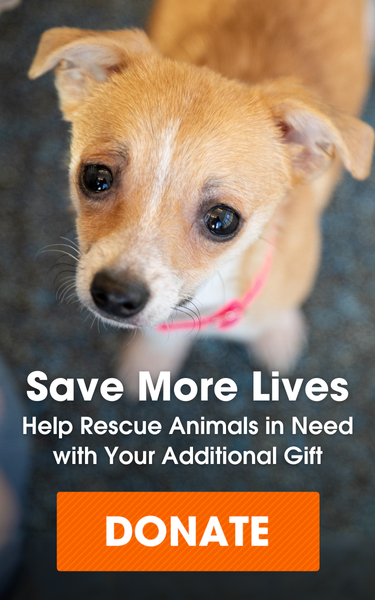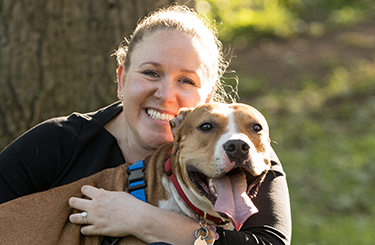Animal Welfare Organizations Hampered by the Pandemic Get a Boost from ASPCA Funds

Over the last few weeks we’ve been in touch with organizations whose animals and operations were assisted by our COVID-19 Relief and Recovery Initiative, a multi-million dollar effort benefiting pets and animal welfare groups affected by the pandemic.
As part of the initiative, the ASPCA awarded $2 million in grant funding to more than 50 animal welfare organizations whose programs, operations or fundraising capabilities have been severely hindered by the COVID-19 crisis. The grant funding is made possible in part by The Alex and Elisabeth Lewyt Charitable Trust, which donated $500,000 to support our pandemic response efforts.
As we connect with these rescues and organizations, we get to see first-hand how animals have been positively impacted nationwide.
Drifter’s Hearts of Hope
At Drifter's Hearts of Hope in Franktown, Colorado, a Tennessee Walking Horse named Big Sky is proof that our COVID-19 response has reached our equine friends.
Big Sky was purchased in June by the non-profit and was extremely underweight and in need of help.
The ASPCA provided a $25,000 grant to support Drifter’s Hearts of Hope, who are using the funds for its COVID-19 Equine Assistance Program—which helps assure horses like Big Sky get the help and care they need—and for the horses the organization has taken in as a result of the pandemic.

“Knowing we had funding to rehabilitate horses like Big Sky is such a weight off our shoulders,” says Colleen Fitzpatrick, Director of Community Outreach at Drifter’s Hearts of Hope. “These are the kinds of horses we love to rescue but who can be costly to rehabilitate.”
From March 1 to July 1, Drifter’s Hearts of Hope took in 45 horses and is on track to surpass its average of 105 horses rescued per year. They are part of The Right Horse Initiative, which hosts a collective of industry professionals, equine welfare organizations and advocates working together to improve the lives of horses in transition.
Big Sky is recovering on a healthy nutrition program, and Colleen is very pleased about his progress. “Turns out he’s a well-trained, sound and a proven trail horse,” she says.
Cat Town
Quinn White, Development Director of Cat Town in Oakland, California, says the ASPCA’s COVID-19 support, which totaled $35,000, has enabled her organization to continue giving second chances to homeless cats and offset their closure due to stay-at-home mandates.

These cats include Cannoli, a laid-back feline who likes dogs; Brigid, a boisterous feline who went home with a family that fell in love with her big personality; and Farfalle, a shy female who had recently had a litter and was transferred to Cat Town by a Trap-Neuter-Return organization whose foster homes were filling up.
Baldwin Humane Society
At Baldwin Humane Society in Fairhope, Alabama, which has served Baldwin County for more than 40 years, Abby Pruet, Executive Director, pointed to a litter of puppies who benefitted from the ASPCA’s gift of $25,000 in grant funds.

“Maggie, Cordelia, Ursula, Eden, Fly and Magnus came to us at two weeks old with no mother and suffering from infestations of internal and external parasites,” Abby says. “One even had puncture wounds from an unknown source.”
The pups had been picked up by a local animal control center which had no funds to give them the extra care they needed.
“Thanks to the funds from the ASPCA, we didn’t hesitate to have them seen by a vet immediately and given necessary baths, medication and puppy formula,” Abby explains. “They are now growing into healthy pups and will soon be ready for adoption.”
Another Baldwin Humane cat—a medium-haired tabby named Toby—was also a lucky beneficiary of the funding. After his owner passed away during the pandemic, Toby was relinquished to Baldwin Humane Society but was disoriented without his previous caregiver.
“He is a very social cat, and we could tell immediately how lonely he was without his family,” Abby says. To help make up for that loss, they put Toby in a large playroom with other cats.

“We saw such a change in Toby when we placed him in our playroom, and he quickly became a staff and volunteer favorite,” recalls Abby.
It didn’t take long before Toby was adopted—by a couple who loves his outgoing and happy personality probably just as much as Toby loves being in a home again.


